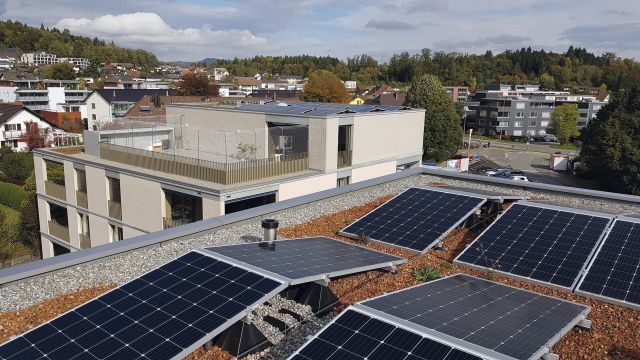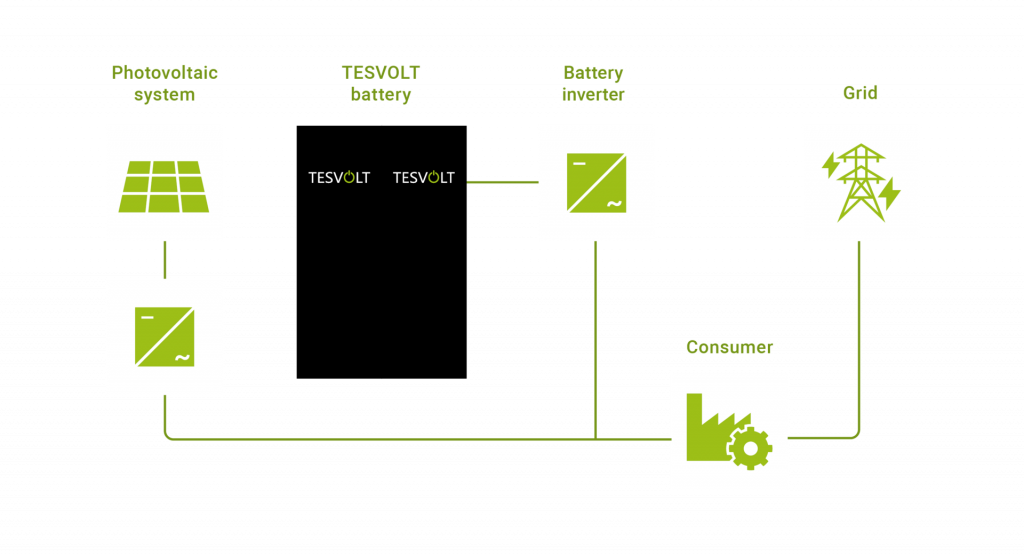• Self-consumption increased to 80 % and self-sufficiency to 40 %
• Peak shaving
Reduces power peaks by approx. 25 % per month and thus reduces the residents’ electricity bills
• Arbitrage
Charging the storage system at low tariffs when there is insufficient sunshine and supplying electricity at high tariffs.
• Durable
The system boasts an above-average lifespan of up to 30 years thanks to extremely robust Samsung battery cells and the one-of-a-kind battery management system, which optimises cells not only within a single module, but also also between the modules in each cabinet.
• Expandable
TESVOLT systems can be expanded or exchanged at any time – not just after the first few months of operation but even many years later.
• High performance, rapid response
Thanks to the battery management system, TESVOLT’s storage systems offer full availability of their energy. TESVOLT storage systems are 1C-capable, meaning they can be fully charged or discharged within an hour with the proper configuration.


 German
German Italian
Italian Dutch
Dutch


 by
by